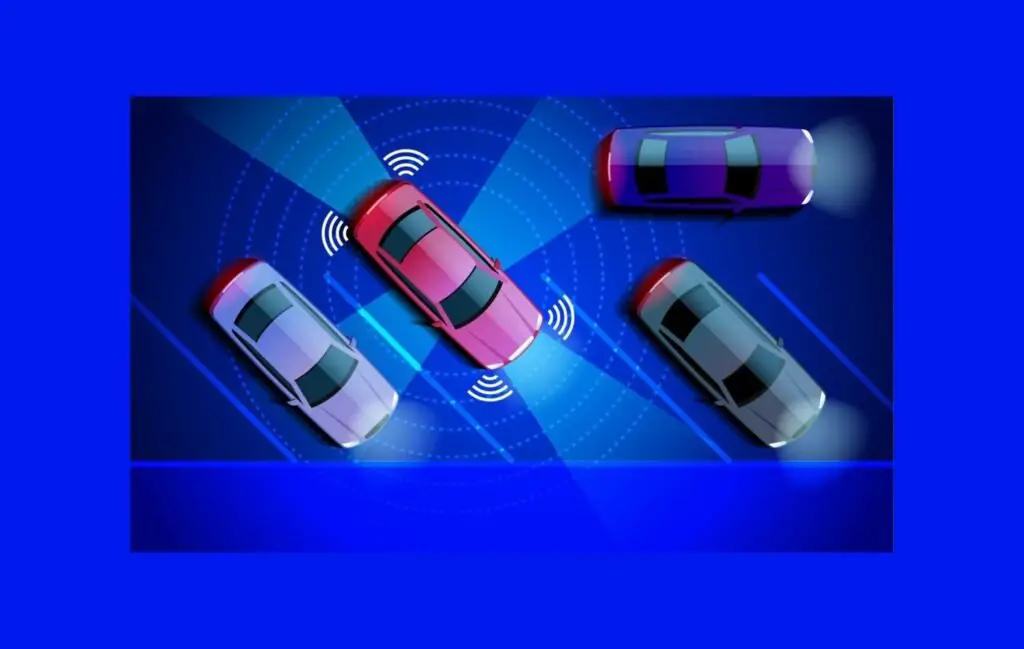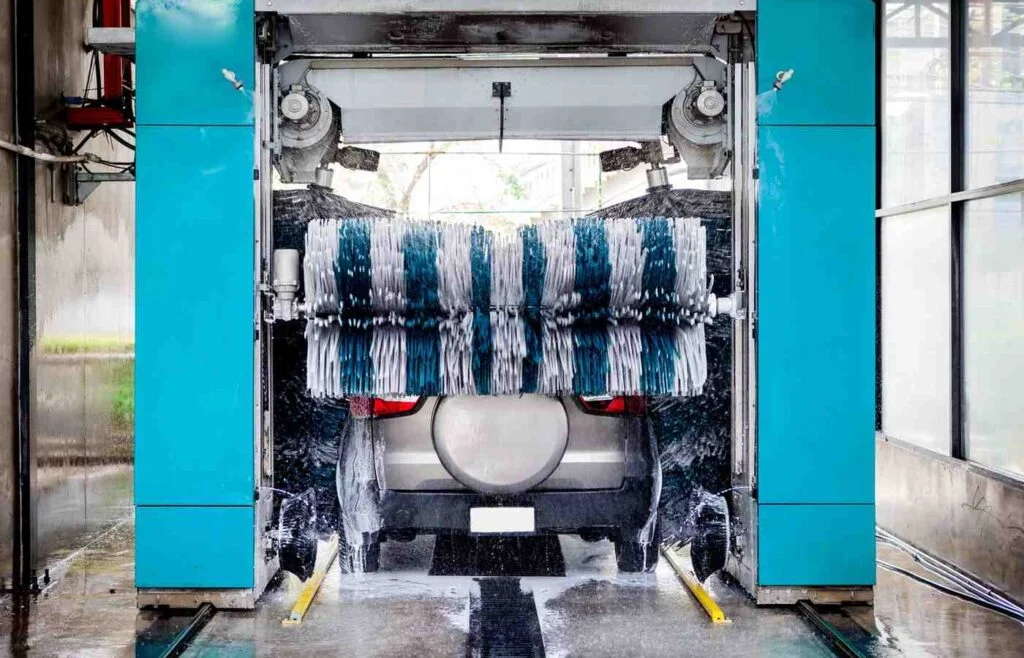What is an Automated Car Parking System? Detailed Look
Imagine a parking system that parks cars for you. No tight turns, no parking attendants, no hassle. This is what an automated car parking system (APS) offers. The need for parking space and land scarcity gave a rising edge to this parking methodology. Rather, both factors are the actual reasons for the invention of automated car parking facility.
In crowded cities, finding parking is stressful. Traditional parking structures are bulky and inefficient. This is where mechanized parking systems come in. They optimize space, save time, and improve the overall parking experience.
Curious about how these systems work? Let’s explore!
What is an Automated Car Parking System?
An automated parking system (APS) AKA robotic parking is a high-tech solution that uses machinery to park cars. It minimizes human involvement, making parking faster and easier. Al Jahra is the city that offers the world’s largest automatic parking facility with 2314 parking areas. And, when it comes to the fastest automated parking system, Wolfsburg Germany is on top of the list.
To reduce the number of parking spots, all APS uses the same idea: getting the driver and passengers out of the car before parking. When using a fully or semi-automated APS, the driver and passengers get out of the vehicle after it has been driven to an entry point. The vehicle is subsequently driven to its parking spot either fully or partially automatically (with some attendant activity needed).
Here are major types of automated parking systems:
- Fully Automated Systems: Everything is controlled by machines and best for high-density areas where space is limited.
- Semi-Automated Systems: Some tasks, like driving into the entry area, require humans.
- Mechanized Parking System: Use machinery like lifts and conveyors to increase parking capacity.
Each type improves efficiency compared to traditional parking methods.
Another question is, “What is automatic parking on a car?” This refers to vehicles with self-parking features, like sensors and cameras, that assist drivers.
Don’t miss out What is a Touchless Car Wash? Everything You Need to Know!
How Does an Automated Car Parking System Work?
Let’s solve the “How does the smart car parking system work?” simply put, by using sensors and automation, it streamlines the process. An APS uses advanced technology to simplify parking. An automatic parking system helps detect objects around the car using different methods. Sensors on the front and back bumpers send out signals that bounce back when they hit something nearby. The system then measures how long it takes for the signal to return to find the obstacle’s location. Some systems also use cameras, like Omniview, or radars to check the size of the parking space and the distance from the roadside.
These systems make parking easier and safer by reducing the stress of steering manually, especially for parallel or garage parking.
Here’s how these automation systems operate:
- You drive into a designated entry point.
- The system scans your car to determine its size and weight.
- Using robotic parking systems, a lift or conveyor moves your car to a vacant spot.
- When you return, the system retrieves your car automatically.
The automated vehicle storage and retrieval system (AVSRS) relies on components like:
- Robotic arms and lifts: These move cars between levels.
- Parking spaces management software: This ensures efficient use of space.
This process eliminates errors, speeds up parking, and reduces the need for parking attendants.
Automated Car Parking System Advantages
Why are automated parking systems gaining popularity? Let’s look at their benefits:
- Space Saving: APS can fit more cars in less area. This makes it ideal for urban areas where land is expensive.
- Improved Parking Experience: No need to worry about driving the car into tight spaces. The system handles it for you.
- Cost Savings: Though installation costs are high, APS saves money in the long run by reducing operational costs.
Common questions
“How much does an automated parking system cost?” Costs vary, but the investment pays off in space and time savings. Is APS really a good investment? Here is the breakdown:
- Installation Costs: High upfront costs due to technology and construction.
- Operational Costs: Lower than traditional parking structures due to reduced staffing needs.
- ROI: Developers recover costs through efficient use of space and increased revenue.
For urban planners, APS offers significant long-term benefits.
Challenges and Limitations
Despite their advantages, Automated Car Parking System has some challenges:
- High Initial Cost: Building an automated parking garage is expensive.
- Technical Dependency: Maintenance requires skilled technicians.
- Vehicle Adaptability: Not all systems can handle oversized or unique vehicles.
These challenges are being addressed with ongoing advancements.
Automated Parking vs. Traditional Parking
Automated parking facilities are often compared to traditional parking structures. Unlike conventional lots, APS can fit more cars in less space by stacking them vertically or in tight rows. Let’s compare:
| Feature | Automated Parking | Traditional Parking |
|---|---|---|
| Efficiency | High (optimized use) | Low (wasted space) |
| Parking Attendants | None needed | Essential |
| Safety | Higher (no human error) | Lower (manual parking risks) |
| Emissions | Reduced | Higher (idling cars) |
Automated systems clearly offer superior benefits, yes only if you have some extra money to spend on it!
Driving Innovation: Trends in Automated Parking
The future of parking lies in automation. Here’s how innovation is shaping APS:
- Integration with Smart Cities: APS works with IoT systems to manage traffic and parking efficiently.
- AI-Powered Solutions: Artificial Intelligence optimizes parking allocation in real time. Examples of automated parking garages include cutting-edge facilities in Tokyo, New York, and Dubai. In the future, these robotic parking systems are anticipated to be Smarter, faster, and more reliable.
These trends make APS an essential part of urban development.
What’s next for APS?
- Modular Designs: APS that can be expanded or relocated.
- Eco-Friendly Solutions: Solar-powered systems for energy savings.
The future of parking is undoubtedly robotic and green.
Wrapping Up
Automated car parking systems are reshaping urban life. This mechanical parking technology parks cars automatically without human intervention. They save space, reduce stress, and offer futuristic parking solutions within limited parking spaces.
As cities grow, APS will become an essential part of infrastructures and hopefully will be the best parking solution. Ready to explore these innovative parking solutions? The future of parking starts now!
Frequently Asked Questions
How much does an automated parking system cost?
Costs vary depending on size, technology, and location but range from $20,000 to $50,000 per space.
How does an automated car parking system work?
Automated parking systems use technology like vertical lifts and horizontal shuttles to transport vehicles from an entry area to a storage compartment. Drivers park their cars in a designated entry bay, and the system handles the rest, moving vehicles to optimized spaces without human assistance.
Are automated parking systems safe and reliable?
These systems are equipped with multiple safety measures, including redundant components to handle failures and backup generators for power outages. They are designed to prevent damage to vehicles and operate seamlessly even in challenging situations.
What happens in case of a system or power failure?
Most systems have backup power sources like generators or UPS to ensure cars can be retrieved. They also include fail-safes and trained personnel to handle emergencies.
How much space does an automated parking system save?
Automated systems can fit twice the number of cars in the same space as traditional parking or use half the space for the same capacity. They are modular and adaptable to different locations, including basements, rooftops, and podiums.
What is the cost of installing an automated parking system?
The cost depends on the layout, number of spaces, and system type. It ranges from $9,000 to $30,000 per parking space. However, operating costs are generally lower due to the elimination of attendants and reduced lighting or ventilation needs.



